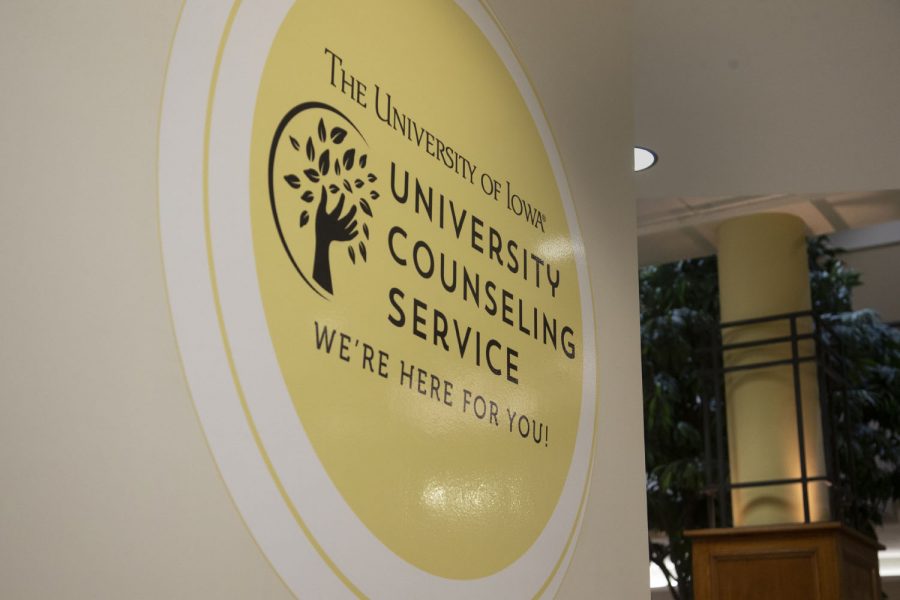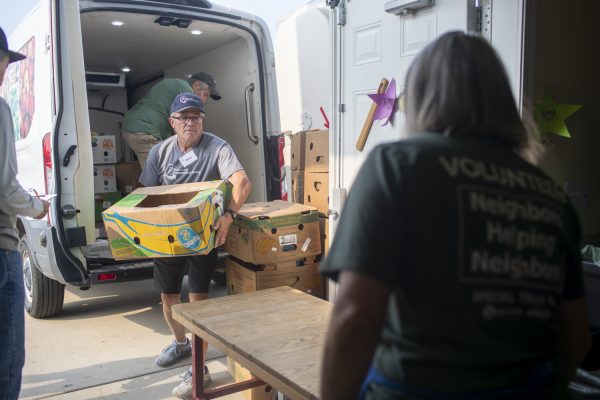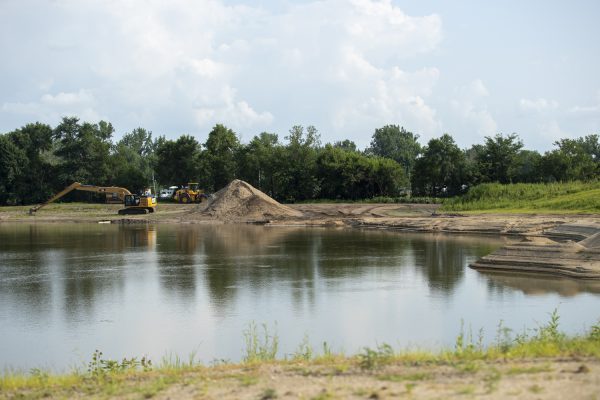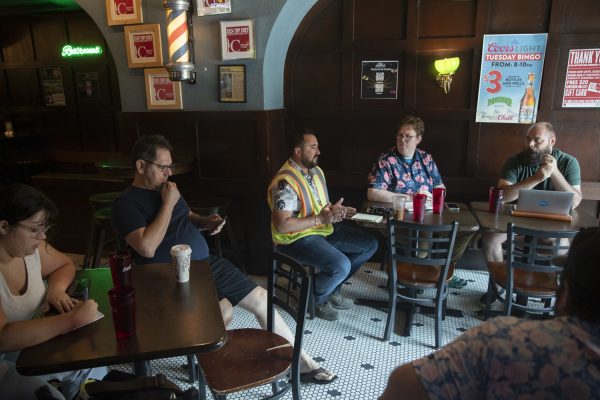University of Iowa health experts worry about psychological effects of the pandemic
As the pandemic continues, health experts examine how some people may experience trauma after the COVID-19 pandemic.
The University Counseling Services office is seen in the Old Capital Mall on Monday, February 17, 2020.
February 16, 2021
University of Iowa Clinical Assistant Professor Yvonne Farley said people may experience trauma from the COVID-19 pandemic because of feelings of isolation, witnessing death and illness in loved ones, and feeling threatened by the virus.
Trauma relates to and is defined by if a person feels like their safety is threatened, she said.
“There could be a variety of reactions around the world to COVID-19 – people that view it as more of a threat than others could view it as traumatic. If family members have gotten ill or died, it can be traumatic for survivors,” Farley said. “Some people don’t feel like they’re at risk, so they don’t view it as traumatic. While people who have vulnerabilities or have a history of the flu might feel more threatened.”
People will have different reactions to trauma, based on how they are feeling, Farley said. Those who experience trauma associated with COVID-19 will go into fight, flight, or freeze, she said.
“People might be more irritable or more likely to fight because their brain is in a trauma response,” Farley said. “Because they can’t run away, then they might be inclined to go into a freeze response where they shut down — they are depressed and lack motivation. That’s a response that the brain has triggered because they feel threatened by what’s happening.”
According to Sandro Galea of Boston University School of Public Health, depression has risen by a factor of three, meaning the number of people who experience depression is almost three times what it was before the pandemic.
Another study done by UCLA found that loneliness among young adults has increased as a result of social distancing.
Once the pandemic is over, one of the hardest things people will have to do is adapt to normal life, Farley said.
“Your ability to adapt is a key component in how quickly you are able to bounce back after the trauma. People could feel cautious of giving up their PPE. They could still be cautious of being with other people,” Farley said. “Once people are in isolation, if they get high stimulation, they could have panic attacks and social anxiety because they have to relearn those skills.”
Although COVID-19 safety precautions won’t be required or an expectation once the pandemic is over, Farley said, it’s likely that some will continue to wear their masks, social distance, and avoid large gatherings.
UI Associate Hospital Epidemiologist Melanie Wellington, who is also a clinical associate professor of pediatrics, said despite some people continuing the safety precautions, most people will shed these restrictions and attempt to return to normalcy.
After the 1918 flu pandemic, the biggest change was to public health funding, she said.
“We’ve shown that our public health system has been fairly woefully underfunded. My sincere hope is that people increase funding for public health,” Wellington said. “It would be great if we could make something like that come out of this dark pandemic.”
RELATED: Iowa partners with Microsoft to create new vaccine scheduling system
Whatever response people have once the pandemic ends, Farley said it’s important for people to be patient and take care of themselves.
“One of the key parts of resiliency – which helps us adapt and recover after we experience trauma – is the meaning they ascribe to the experience,” Farley said. “If people can find a positive way to view this, focusing on the things they’ve gained helps to offset the negative aspects of the experience, they’ll feel better.”
Another important component of recovery is normalizing the experience by recognizing that everyone has been affected by this and is struggling, Farley said. She said people should be reminded to take care of themselves.
“Taking care of yourself and doing special things for yourself as much as you can is important to recovery,” Farley said. “During and after the pandemic, the more you can practice self-care for your body, mind, and spirit, that will help people get through it and to recover.”














